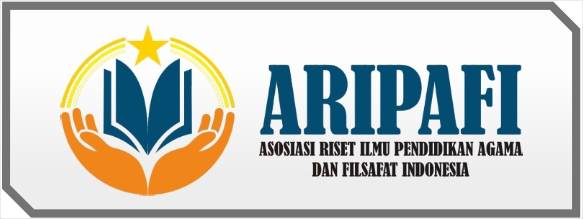Transformasi Sosiologi Pendidikan dalam Islam Perkembangan Pemikiran dan Kontribusi Para Cendekiawan Muslim
DOI:
https://doi.org/10.61132/reflection.v2i1.450Keywords:
Islamic education, sociology of education, Al-Ghazali, Ibn Khaldun, Al-FarabiAbstract
This research examines the transformation of educational sociological thinking in Islam, with a focus on the contributions of classical scholars such as Al-Ghazali, Ibn Khaldun, and Al-Farabi. These three figures integrate education with social, moral and spiritual values, creating a holistic approach that not only emphasizes intellectual development, but also character formation. Al-Ghazali emphasized the importance of balanced education between worldly and ukhrawi knowledge, while Ibn Khaldun, through al-umran theory, viewed education as a tool to maintain social cohesion and build a just civilization. Al-Farabi, with his thoughts about the ideal society, emphasized the role of education in creating virtuous individuals. The research method used is a literature review with a qualitative-descriptive approach to analyze the relevance of these thoughts in facing contemporary educational challenges. The results show that even though they come from different historical contexts, their thoughts remain relevant, especially in responding to today's educational challenges which prioritize a balance between science, morality and spirituality. Thus, the contribution of sociological thought to education in Islam has had a significant impact on the social structure and development of Muslim education to date.
References
Adawiyah, Pettalongi. 2023. Sosisologi Pendidikan. Andrew’s Disease of the Skin Clinical Dermatology.
A. Enan, Ibnu Khaldun Kehidupan dan Karyanya, Elektronik. Bandung: PT. Dunia Pustaka Jaya, 2019.
A. K. A. Karim dan N. Suhaini, “Kepentingan Teori dan Ilmu Sosiologi dalam Konteks Pendidikan Menurut Perspektif Ibnu Khaldun,” J. Tuah, vol. 1, no. 1, Art. no. 1, Okt 2020, Diakses: Des 12, 2020. [Daring]. Tersedia pada: http://journal.kuim.edu.my/index.php/JTuah/article/view/687.
Maksum, Ali. Sosiologi Pendidikan, Malang: Madani, 2016
Basyar, S. (2020). PEMIKIRAN TOKOH PENDIDIKAN ISLAM Syaripudin. RI’AYAH, 5(1), 1–14. http://scioteca.caf.com/bitstream/handle/123456789/1091/RED2017-Eng-8ene.pdf?sequence=12&isAllowed=y%0Ahttp://dx.doi.org/10.1016/j.regsciurbeco.2008.06.005%0Ahttps://www.researchgate.net/publication/305320484_SISTEM_PEMBETUNGAN_TERPUSAT_STRATEGI_MELESTARI
F. Nasdian, Sosiologi Umum. Jakarta: Yayasan Pustaka Obor Indonesia, 2015. “Pendekatan Sosiologi.” Diakses: Des 12, 2020. [Daring]. Tersedia pada: http://www.pustaka.ut.ac.id/lib/wp-content/uploads/pdfmk/SOSI4401-M1.pdf.
M. A. Enan, Biografi Ibnu Khaldun. Serambi Ilmu Semesta, 2013.
M. Ali, “Kontribusi Sosiologi dalam Pengembangan Pendidikan Islam,” Suhuf, vol. 28, no. 1, Art. no. 1, Feb 2017.
M. W. N. Tualeka, “Teori Konflik Sosiologi Klasik Dan Modern,” Al-Hikmah, vol. 3, no. 1, Art. no. 1, Feb 2017.
OK, H. A. (2021). Analisis Pemikiran Ibnu Sina dan Ibnu Khaldun Terhadap Konsep Pendidikan Islam. Edukasi Islami: Jurnal Pendidikan Islam, 10(2), 1–18.
P. D. K. Sunarto, Pengantar Sosiologi. Universitas Indonesia Publishing, 2005.
“Sosiologi dan Sosiologi Pendidikan.pdf.” Diakses: Okt 25, 2020. [Daring]. Tersedia pada: https://publikasiilmiah.ums.ac.id/bitstream/handle/11617/9294/Sosiologi%20dan%20 Sosiologi%20Pendidikan.pdf.
S. Jurdi, Sosiologi Islam dan Masyarakat Modern : Teori, Fakta, dan Aksi Sosial, 1 ed. Jakarta: Kencana, 2010.
“Pemikiran Politik Ibnu Khaldun danPembentukan Teori Sosiologi Politik.” Diakses: Des12,2020.[Daring].Tersedia:http://repository.radenfatah.ac.id/6302/1/KAMARUD DIN.pdf. [11] A. Matlail Fajar, M. Fajar, K. Kunci, P. Sosial, dan I. Khaldun, “Perspektif Ibnu Khaldun Tentang Perubahan Sosial,” SALAM J. Sos. Dan Budaya Syar-I, vol. http://journal.uinjkt.ac.id/index.php/salam/issue/view/739, hlm. 1–12, Jan 2019, doi: 10.15408/sjsbs.v6i1.10460.
Tharaba, M. Fahim. Sosiologi Agama: Konsep, Metode Riset dan Konflik Sosial (Malang: Madani, 2016).













